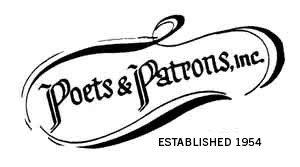He is vanishing before my eyes.
Muscle, tissue, sinew, skin
melting away like a thaw
that knows no hope of spring.
Today, his own hands surprise him—
flesh not of his body,
he cannot remember
what illness caused this pain,
nor whose fingers these are
that have curled and cramped
against his own dry palm.
Circling the room,
he paces without purpose,
this captive who has forgotten
the feel of sun,
the look of sky and moon and star,
who has forgotten the names of days,
afraid of his reflection
when they come to shave him,
the mirror gleaming on his bony skull.
“This is the newest model.
I can get it up to 90 in less than a minute, and it runs so smooth,”
he declares, mistaking his own steel-railed bed
for the sports car that he only drove for show one afternoon,
pretending to the ladies it was his.
He cannot remember his favorite color,
why he raged at the untrimmed hedge,
how he took his coffee,
if his wife had ever loved him.
But this dark chocolate ice cream on the tongue,
now this is something.
Sweet and smooth
smooth and sweet,
it stirs a strange awakening.
Two spoonfuls and his throat is closed again.
“Here,” he whispers, pushing the dish to me.
“I’m getting so bad.”
Chin drooping to chest,
he stares at the floor,
seeing ants where none are crawling.
I kiss his one good hand.
“Come on,” I say. “Let’s take a walk.”
In the hall, floor tiles shiny, disinfectant,
metal cart clustered
with plastic cups of applesauce and powdered pills.
“Look there,” he suddenly shouts,
pointing with that one good hand to a flowered window curtain.
“The crocuses, they’re early this year.”
And for an instant then, he smiles.
This poem won the 2007 Writers’ Studio Award for poetry. It was originally published in Progenitor 2007, the literary magazine of Arapahoe Community College, Littleton, Colorado, which sponsored the contest. It also appears online on the Colorado Poets Center website.
